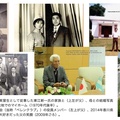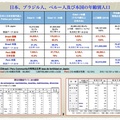At the end of January this year, the government announced its intention to take steps to realize equal pay for equal work as part of the "Japan Plan for a Society of 100 Million Active Parties." The government's intention is to correct the wage disparity that exists between regular and non-regular employment and to improve the income of non-regular workers, but it goes without saying that there are pros and cons to this argument.1
Around the same time, I came across an article on the website of the Peruvian economic magazine "GESTION" that said, "If there is a wage disparity for the same job for unfounded reasons, the employer will be sentenced to three years in prison." 2 Any worker can file a complaint with the Peruvian Labor Standards Inspection Office, and if the disparity and unfair treatment are proven, the state can sue the employer for violating the principle of equal pay for equal work, and a judge can sentence the employer to up to three years in prison. It seems that such penalties have rarely been applied in practice, but they do exist.
Even in Japan, the disparity in treatment between regular and non-regular employees is considerable. Non-regular employees account for just under 40% of all workers, with approximately 20 million working as part-timers, contract employees, dispatched employees, or temporary employees. Even if these non-regular employees do the same work as regular employees, they rarely receive the same wages, and the principle of "equal pay for equal work" has never been seriously discussed in Japan. While this principle is relatively easy to adhere to in highly specialized occupations, "equal pay for equal work" is most needed in occupations that do not require a high level of skill, such as factory workers, general office workers, food service workers, and sales workers.
In many occupations, the real wages of non-regular workers are kept quite low, regardless of their educational background or qualifications, making it difficult to correct this disparity. It is not possible to convert all employees to regular employees, and even if the constitution clearly protects workers and laws requiring the correction of wage disparities are passed, there is a risk that this will encourage "black labor" as seen in Latin America. Excessive and unrealistic regulations will instead expand the underground labor market. According to the World Bank, roughly half of the working population is in this situation.3
In Japan, even non-regular employees can enroll in employment insurance if they meet certain requirements through their employer. Workmen's accident compensation insurance covers all workers even if their employer neglects to enroll them in the insurance. Pension and medical insurance are often dependent on the husband for part-time work with few hours, but workers can enroll in national pension and national health insurance on their own. However, the challenge with non-regular employment is that no matter how much work you do or what kind of training you receive, there are often no pay increases or bonuses, meaning little incentive.
By introducing the principle of equal pay for equal work, the government aims not only to correct these disparities, but also to improve the harsh working conditions of full-time employees, such as excessive unpaid overtime and low rates of paid leave taken, and to achieve a better work-life balance.
It is unclear what kind of legal reforms will ultimately be enacted, but even non-regular employees should be guaranteed compensation commensurate with the skills and responsibilities of their jobs. It is true that if domestic wage levels rise too much, it will become an unbearable burden for small and medium-sized enterprises, and large companies may choose to relocate overseas. However, in order to revitalize the domestic market and realize a balanced growth strategy, fair employment must be protected and unreasonable wage disparities must be rectified.
So, can the principle of "equal pay for equal work" be applied to foreign workers as well, and can the wage disparity between them and Japanese workers be reduced? Several Peruvians have voiced the following concerns:
"I can understand Japanese to a certain extent and I've obtained a qualification to operate machines, but my wages are lower than those of Japanese people doing the same work, and I've always been a contract employee for the past 20 years."
"I have a welding qualification and work harder than Japanese people, but they won't make me a permanent employee. My hourly wage hasn't increased at all in the last 10 years."
"We all do the same work to make bento boxes, but our hourly wage is lower than that of the Japanese part-time workers."
"No matter how hard I work or how much I ask to work the night shift, my hourly wage doesn't increase, and there is a wage gap between me and the other (Japanese) employees."
The work that many foreign workers are engaged in is relatively simple, and they can often do it without any problems if they learn certain work procedures. In assembly line work such as packing lunch boxes or assembly line work, there should not be a big difference in productivity between Japanese staff and foreign workers. Despite this, there is an unfounded wage gap.
There is a past precedent for correcting wage disparities that can serve as a reference: the Maruko Alarm case, which occurred in 1996.4 Twenty-eight female part-time employees with years of service ranging from 5 to 25 years filed a lawsuit at the Ueda branch of the Nagano District Court, alleging that they were paid lower wages than full-time employees, and that their pay increases and bonuses were too small, despite their working hours, including overtime, being roughly the same as full-time employees, constituted unfair wage discrimination.
The court stated that the wage disparity did not fall under the category of "social status" as defined in Article 3, paragraph 5 of the Labor Standards Act, and that the principle of equal pay for equal work is not a general legal norm governing labor relations, and therefore the disparity in treatment between part-time workers and full-time employees could not be corrected on these grounds. However, on the other hand, based on the idea of equal treatment that is the basis of Articles 3 and 4, paragraph 6 of the Labor Standards Act and the principle of equal pay for equal work, the court ruled that such disparity was an act that violated public order and good morals, and that the wage disparity was illegal. The employer adjusted wages based on length of service, etc., and it was reported that if the wages of part-time employees, including bonuses and retirement benefits, were less than 80% of those of full-time employees, this constituted illegal discrimination, and the lawsuit was won by the workers. The company subsequently appealed, but a settlement was reached in November 1999.
What is noteworthy here is the wage disparity between full-time and part-time employees. A 20% difference was deemed reasonable. Although complete equality was not achieved, this case influenced subsequent amendments to the Part-Time Workers Act and the enactment of the Labor Contract Act, contributing to the improvement of disparities in treatment.

However, academic theory and other precedents do not support this principle of equal pay for equal work, and it remains to be seen how far the government's proposed legal reforms will progress. If the contractual structure is different and the responsibilities and expectations are different, a certain range of wage disparity is considered reasonable. Japan's full-time employees are expected to be able to perform a wide range of tasks rather than specialized skills, and are expected to be transferred, move around, and mentor junior employees. The extremely severe wage disparity must be corrected, but there is a strong view that this can be addressed by applying current laws and raising the minimum wage. It is also said that wages for foreign workers can be significantly improved by improving their Japanese language skills and obtaining qualifications.
It is unrealistic to make all workers full-time employees, and it is impossible to legally enforce the principle of equal pay for equal work in all cases. Rather than through legal reform, strengthening the powers of labor standards inspectors, which will make it easier to correct unfair disparities, and promoting the introduction of more flexible personnel systems may be a shortcut to correcting disparities.
Notes:
1. " Debate: What do you think about equal pay for equal work ?" Sankei News, March 6, 2016
2. Miguel Juape, “ Irish cargoes with different weights on the road without a miscellaneous cargo ,” Economía, GESTION , 2016.01.08 http://gestion.pe/economia/gerentes-irian-carcel-with-different-weights-on-the-road-with-miscellaneous-cargo-2152286
3. According to a 2013 World Bank study, the black labor rate in Latin America is 47.7%, with 130 million people working in jobs without any security. In Central America, the rate exceeds 70%.
" The middle of Latin American workers has an informal employee ", Banco Mundial, 2014.04.01
4. Maruko Alarm Case, " (99) Wage Gap for Part-time Workers ," JIL Institute for Labor Policy and Training
5. Article 3 of the Labor Standards Act: Employers must not discriminate against workers in terms of wages, working hours, or other working conditions on the basis of their nationality, creed, or social status.
6. Article 4 of the Labor Standards Act: Employers must not discriminate against female workers in terms of wages compared to male workers on the grounds that they are female.
© 2016 Alberto J. Matsumoto







